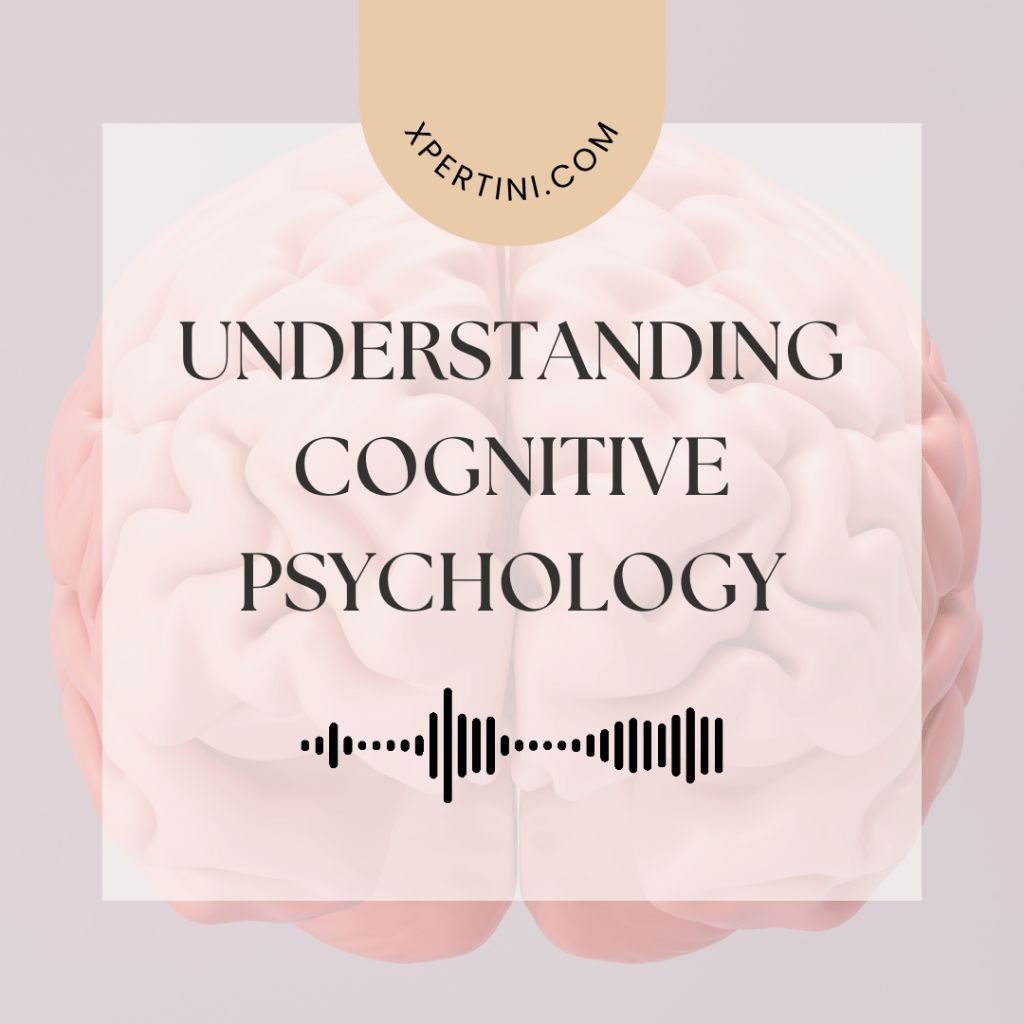Understanding Cognitive Psychology
Course Summary
This comprehensive course in Cognitive Psychology offers an insightful exploration human cognitive processes. Spanning ten meticulously crafted lessons, it delves into foundational principles, historical perspectives, and the myriad applications of cognitive psychology. Geared towards aspiring professionals and those seeking to augment their cognitive knowledge, each lesson distills complex theories into accessible frameworks.
The journey commences with an overview of cognitive psychology, elucidating mental processes such as perception, attention, memory, and decision-making. By breaking down these complex concepts into digestible models, learners gain a profound understanding of the foundational pillars of cognitive psychology.
Historical insights unfold, showcasing landmark discoveries and key figures pivotal in shaping the discipline. From there, the course traverses through the evolution of cognitive psychology, portraying how it has emerged as a distinct and influential field of study.
The exploration extends to foundational cognitive processes, dissecting basic concepts and theories. Students are guided through cognitive frameworks and models, facilitating a comprehension of the workings of the mind.
Memory and learning take center stage in subsequent lessons, revealing the role of memory in cognitive processes and expounding various learning theories with practical applications. The course then probes into the mechanisms of attention and perception, elucidating their profound influence on cognitive functions.
Decision-making is a crucial segment, delving into the cognitive processes involved and the prevalence of heuristics and biases. Further lessons navigate the neural mechanisms in cognition, offering a glimpse into brain structures, neurotransmitters, and their pivotal roles in cognitive processes.
Applications in clinical psychology are unveiled, showcasing how cognitive psychology contributes to diagnosing and treating mental disorders. The rehabilitative aspects and therapeutic interventions grounded in cognitive principles are outlined, providing a holistic understanding of real-world applications.
The penultimate lesson unfolds the impact of cognitive psychology in educational settings, elucidating how it enhances learning outcomes. Practical applications in diverse educational contexts are explored, offering valuable insights for educators and practitioners.
Finally, the course culminates with a comprehensive examination of diverse career paths in cognitive psychology. It navigates through networking opportunities and avenues for professional development, providing a strategic roadmap for those starting a career in this field.
In essence, this course transcends conventional boundaries, presenting cognitive psychology as an indispensable discipline with far-reaching implications in understanding and optimizing the complexities of human cognition.
Course Overview
Understanding Cognitive Psychology is a comprehensive course designed for individuals aspiring to build a career in psychology or those seeking to enhance their knowledge in this field. Delving into the complexities of cognitive processes, this course provides a deep understanding of how the mind works and its applications in various domains.
Course Objectives
Explore foundational concepts in cognitive psychology
Understand the historical evolution of cognitive psychology
Analyze the cognitive processes underlying human behavior
Apply cognitive psychology principles to real-world scenarios
Investigate the role of memory, attention, perception, and decision-making
Gain insights into the neural mechanisms influencing cognitive functions
Explore the practical applications and limitations of cognitive psychology
Examine cognitive psychology’s role in diagnosing and treating mental disorders
Evaluate the impact of cognitive psychology in educational practices
Identify diverse career opportunities in the field
Course Outcomes
Develop a foundational understanding of cognitive psychology principles
Analyze historical perspectives and landmark discoveries in the field
Apply cognitive theories to real-life situations
Understand the role of memory, attention, perception, and decision-making in cognition
Evaluate the neural mechanisms underlying cognitive functions
Apply cognitive psychology principles to diagnose and treat mental disorders
Integrate cognitive psychology in educational practices for enhanced learning outcomes
Explore various career paths within the domain of cognitive psychology
Engage in critical thinking and problem-solving using cognitive psychology frameworks
Demonstrate practical applications of cognitive psychology concepts
Course Audience
Individuals aspiring to pursue a career in psychology
Psychology students seeking a comprehensive understanding of cognitive processes
Professionals in related fields looking to expand their knowledge base
Educators interested in integrating cognitive psychology principles into teaching practices

